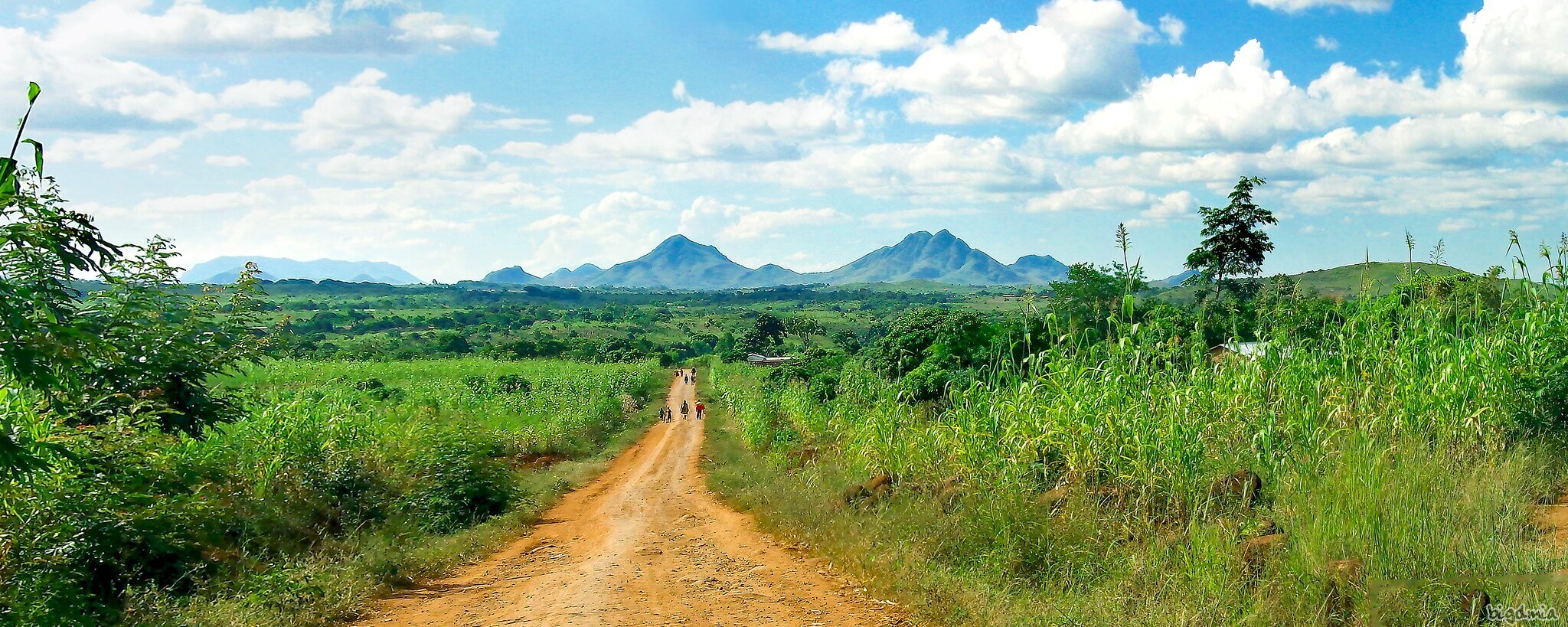Above: Landscape shot in Malawi’s Thyolo district. Image by Ismail Mia, Creative Commons.
For anyone who has grown up with safe and plentiful water ‘on tap’ it’s all too easy to take it for granted. For others, the challenge of accessing water is a daily struggle. Until recently, the people of Mbomuwa – a small village in the southern region of Malawi – were forced to rely on a nearby river for all their water needs. We caught up with two people who explained how a safe supply has changed lives in this community.
Alice Mbomuwa, the village Chief at the forefront of efforts to secure safe water for the village explains that in the past, villagers relied on the river running through the whole village as their main source of water. It was used not only for drinking, but for cleaning dishes, washing and bathing – contributing to diarrhoea-related diseases in the village. When the river flooded during the rainy season, people were unable to draw water. Instead they were forced to walk very long distances to wells in neighbouring villages.
“I did not have any other option”
Patricia Fodrick who lives in the same village, takes up the story. She is sole carer of her son, Luciano (37) who has been severely disabled since the age of four. As he is unable to walk or talk, Patricia, a widow, spends most of her time taking care of her son and other family members. She grows various food crops, partly to earn money and partly to feed those who depend on her .
Above: Patricia and her son, Luciano
Patricia describes how the past situation had affected them:
“I would normally draw water from the river that runs through our village. Even though I knew the water is not safe, I used the water anyway as I did not have any other option. The walk to the river is very bushy and slippery - I would often fall down.” At the age of 72, she no longer has the strength to carry water over a long distance.
Patricia told us that the family constantly suffered from diarrhoea-related diseases as a result of the unsafe water. When one of them fell ill, she would have to buy medicine, despite having very little money. She would be forced to sell food that she’d grown for her family. The situation was particularly difficult when her son Luciano suffered from diarrhoea. Staying home to care for him meant that she couldn’t get to work on her farm, with the knock-on effect of reducing her crop.
A safe and sustainable supply
After a particularly bad incident of river contamination, Chief Mbomuwa approached the District Health Office for help, but they offered only a temporary solution. She recognised that the village needed a safe and sustainable water supply for the long term.
The solution, with United Purpose’s support, was to drill three boreholes in different areas of the village, so that all the people would be able to draw safe water.
Better health, better lives
Above: Chief Alice Mbomuwa
Patricia’s family are now much healthier and better off, as a result. “I no longer spend money on medication and I now use this money for household needs,” she says. “Since the borehole is not so far from my house, I no longer spend a lot of time fetching water and instead I spend more time doing farming activities so I am confident that I will have more farm produce. I now also have time to take care of Luciano and spend time with my family.”
Chief Mbomuwa is only too aware that good health is a requirement for development and describes how how she will ensure that the water supply is safeguarded for the future. Water point committees have been established to maintain all three boreholes and each family pays a small tax to ensure the sustainability of the water points.
“I now feel happy for my people as the people will no longer be at risk of so many infections,” Chief Mbomuwa concludes.





